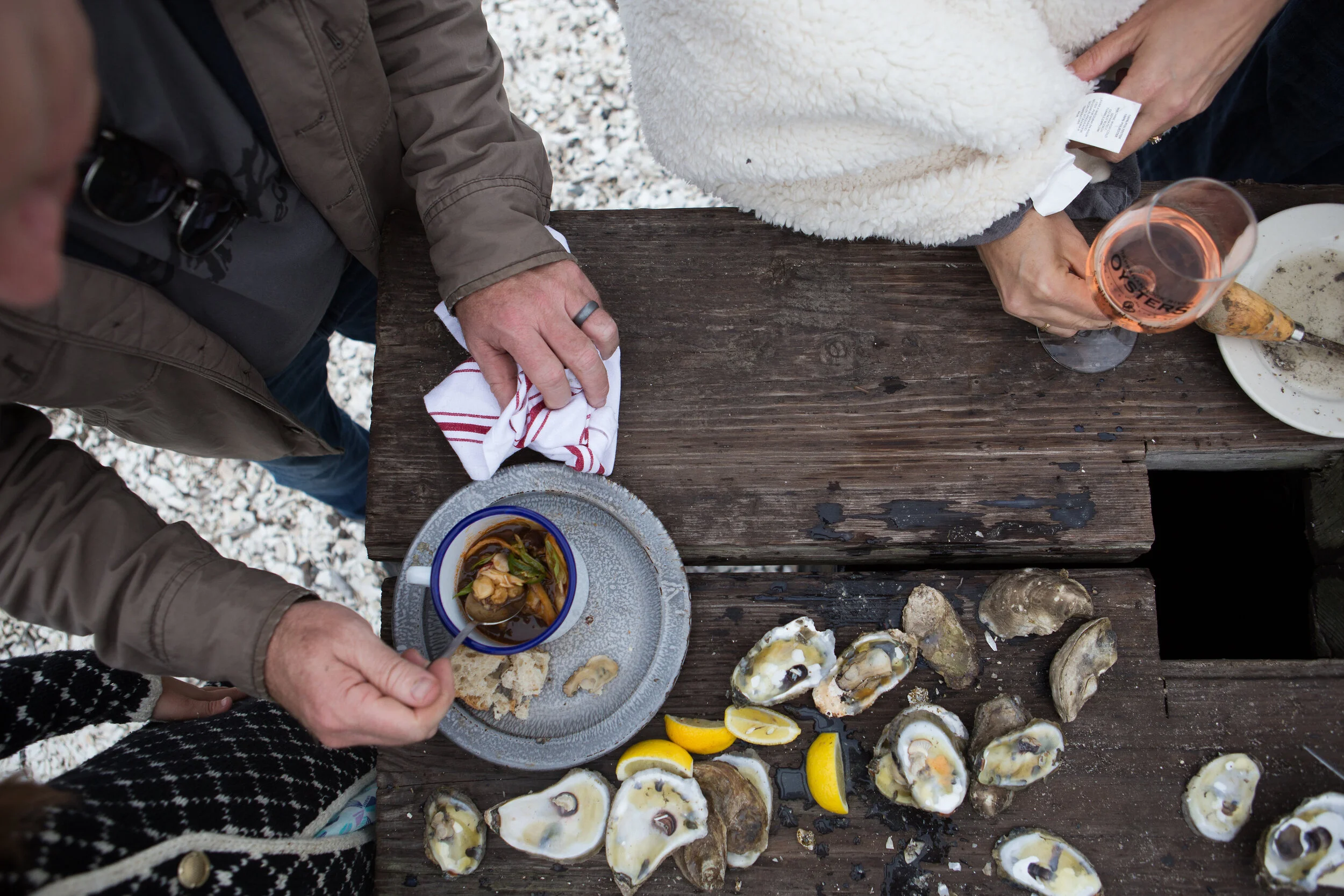‘Spent’ Grains Get a Second Wind
/By Chris Breitenberg, Photography by Amber Breitenberg
With the help of local farmers and chefs, brewers are turning a waste problem—the spent grains left over from making a batch—into a protein-rich feed for livestock and new products for the local food community.
And it turns out, cows like beer (or at least the byproduct of making it) as much as we do.
Spent grain amounts to 85% of the byproduct from the brewing process. In 2012, US brewers produced approximately 2.7 million tons of so-called spent grain.
To make beer, brewers steep, dry and then kiln a variety of grains to produce malt. The malt is milled and mashed, leaving behind leftovers—grain husks and a cereal mash—that are often thrown away. But though it’s no longer useful to the brewing process, the grain isn’t totally spent.
In the hands of farmers, spent grain becomes a desirable foodstuff for cows, pigs and other farm animals. Rich in protein, the brewing byproduct provides a nutritional boost, reducing the need for supplements like soy or fishmeal. Barley, the most common spent grain, hardens animal fat, leading to richer cuts of pork and beef.
The symbiosis extends beyond animal nutrition to the bottom lines of both businesses. Many brewers give it away, which allows them to eliminate grain disposal costs while providing substantial cuts to the feed bill on the farm.
Kip Kell of Full Cellar Farm and Justin Cox at Atlas Brewery are in on the act. Like many spent grain relationships, farmer and brewer met informally, in this case, at the H Street NE Farmers Market run by FRESHFARM Markets. Now Kelley picks up 1,200 to 1,800 pounds of spent grain from Atlas each week.
“As a farmer aising animals, feed is your biggest expense,” explains Kelley. “If you can find a way to decrease that cost without giving yourself additional work, it is a big win.”
“It makes a lot of sense to partner with Kip to remove our spent grain,” Cox adds. “He gets free animal feed, the grain is recycled rather than thrown out, and I get to help out a great farmer who provides me and my neighbors with fresh produce.”
Home brewers have long supplied home bakers with grains for bread, and now local chefs are seizing the opportunity as well. Spent grains are showing up on dinner plates across DC in the form of hamburger buns, coffee cakes and granola. Bluejacket, a brewery in Navy Yard, sends some spent grains to the in-house restaurant, The Arsenal, for pasta-making. The rest goes out to farmers who supply pork to area restaurants.
The grains are working their way into local dough, too. We The Pizza’s menu has featured spent-grain crusts. Pizza Paradiso and DC Brau have partnered for the past five years on a spent-grain fundraiser that supports the nonprofit Bread for the City.
Who’s next in this space? Distillers have long been part of this ecosystem and their growing number in the DC area makes them a more common source. Copper Fox Distillery in Sperryville, Virginia, supplies farmers on the east side of the Blue Ridge Mountains with its signature smoked and spent barley. The recently opened distillery Republic Restoratives in Ivy City is exploring outlets as well.
Though trending recently, the spent grain exchange dates to prehistoric times. According to the Beer Institute, a national trade association for American brewing, archaeological findings suggest that the practice of farmers feeding their animals spent grains supplied by brewers dates back to the Neolithic Era.
The association believes the 2014 Food and Drug Administration ruling on the Food Safety Modernization Act, which ushers in new rules for animal feed, will maintain the light regulation needed to keep this age-old relationship humming.








